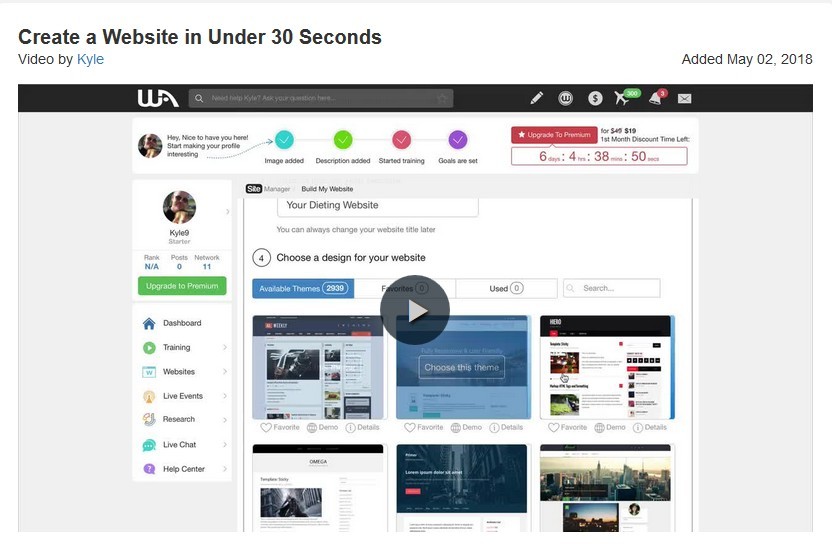Do you know a second language? The multiple years of learning a foreign language in high school may come in handy. That is if you paid attention and learned that language. You can make a great living being a bilingual. There are many language jobs available.
 If this is a job you would like to explore, you may wonder “What do I need to know and how do I get started?” In this article I will share my experience and what I have learned to get you started.
If this is a job you would like to explore, you may wonder “What do I need to know and how do I get started?” In this article I will share my experience and what I have learned to get you started.
Common Terminologies
Here are handful of common terms for you to be familiar with. There are two terminologies that are commonly misunderstood. They are interpreting and translating.
Interpreters
Most of the time people refer to translation instead of interpretation. You may wonder if there is a difference. Yes, there is. According to the dictionary.com and in the bilingual world, an interpreter is a person who provides an oral translation between speakers who speak different languages.
Translators
In general, people use translation as a common word for interpreting. However, according to the bilingual world, translators refer to translating written documents while interpretation refers to interpreting orally.
Consecutive Interpreting
The interpreter is the middle person between the multiple languages. When the first person speaks the original language, the interpreter interprets the original language to the second language, the second person responds and the interpreter interprets the response back to the original language.
This is a common way of interpreting for meetings. It is a slow method of the languages being volleying back and forth consecutively.
Simultaneous Interpreting
The interpreter processes and interprets to a client simultaneously while receiving new inputs from another source. This is commonly used during court proceedings or broadcasts. It is a faster method of interpreting than the consecutive interpreting. However, it is also more difficult. You would have to process the translation on the fly.
If you are interested to learn more terminologies, I found a website that has a compilation of different terminologies used for bilingual services which also includes sign languages. ==> CLICK HERE for more Terminologies.
Certification or Not
Do I need a certification to do interpretation? This depends on you and/or the company that you want to work for. If you are interested in working at the court house, you will definitely require a certification and experience. However, when your language is in great demand, sometimes the court house or other companies would be willing to train you.
Having a certification definitely will boost your credibility. However, it is not a must. There are several different types of certifications such as ATA certifications and ACTFL certifications. Find out what is the requirement for your business.
Here are a few websites for you to explore regarding training and certifications:
- ACTFL Organization Professional Development for Training and Certification
- Language Testing
- ATA Certification
What is expected of an interpreter?
The interpreter is expected to look professional in appearance as well as manner. Always be on time or earlier than the appointment time. We are expected to interpret as accurate as possible to the target language without adding our own opinions or perspectives. The interpretation should also not be summarized.
The interpreter is to be neutral to all party. Our focus is to close the communication gap between languages and not act as a mediator or an adviser.
When interpreting, speak in the first person as the person who he or she is interpreting for and refer to self as a third person.
 Jobs
Jobs
There are many companies constantly looking for interpreters. The most common languages are Spanish, French, German, Portuguese, or Russian. However, more languages such as Chinese, Vietnamese, Arabic, Hindi, and Korean are steadily increasing in demand. You can do a search online for your specialty language.
You can travel to locations as an interpreter or you can also be an interpreter over the phone. You can also be the translator for translating documents or books, sub titles for movies, and many others.
Here are a few online jobs:
Language Line – This company specialized in telephone interpreting for customer services, medical, and others. They charge per minute for the interpretation over the phone. You can work at the comfort of your own home for a block of hours every day.
Court interpreters – Being a court interpreter requires a certification and experience. It requires a lot more of your attention and quick on the fly translation. If you are interested in becoming a court interpreter, check out the court self assessments to see if you would qualify.
I also found a great article that has a list of different jobs for bilingual in virtual call centers: The Balance Careers Bilingual jobs
An average bilingual interpreter salary is at $51,260 per year or $24.64 per hour. It can range from $23,710 to $88,010 per year.
Conclusion
For me, I was born and raised in Vietnam. I moved to America when I was ten so I have the basic understanding of Vietnamese language and culture. Practice talking and writing Vietnamese on a regular basis was key for me. Like anything, if I don’t use it I will lose it. So I totally recommend for those who are born in the US or abroad and have families from foreign countries, to work hard on keeping your language and culture alive in your every day lifestyle. It will benefit you for finding jobs easier. In addition, your heritage is a legacy to pass on to your children.
I was fortunate to stumble across the opportunity to be a Vietnamese Interpreter. I learned that there was a demand in the Vietnamese language in Orlando. The world is getting smaller. People from all the world are moving from one country to another more frequently than I can ever imagined.
I started out interpreting Vietnamese for a health screening company during the flu season which was October through December. From this job, I met an interpreting service provider who needed a Vietnamese interpreter. I did freelance work for both on a needed basis. What is cool is that I can pick and choose the dates to interpret Vietnamese that fit my schedule. I tried to take on as many as my schedule allowed to gain experience.
Most of the times when I finished interpreting for my clients, I walked away with a feeling that I made a difference. It is a wonderful feeling of knowing that I can fill the language gap or barrier for all parties. On top of that I get paid for contributing to the community.
Interpreting is not as easy as I thought at first. It requires listening skills, patience, and in tune with my own intuition. Like anything, I know that I will get better and improve over time with practices and experiences.
If interpreting or translating is not for you, check out other options on my website such as Affiliate marketer or online jobs for writers.
Love to hear from you regarding bilingual jobs. Please leave your comments or questions below.

![By Cfmp0823 [CC BY-SA 4.0 (https://creativecommons.org/licenses/by-sa/4.0)], from Wikimedia Commons Translate-Button-White](https://online-homebased-business.com/wp-content/uploads/2018/05/Translate-Button-White.jpg)




4 thoughts on “Language Jobs – What do I need to know and how do I get started?”
It sounds like being an interpreter can not only be lucrative, but provide you with a feeling of doing good for others….I like that!
My sister has been looking for something to do with her Spanish experience (4 years of high school and 1 year of college). Her conversational Spanish is pretty good. Do you think that is enough for an interpreter job or should she look to get certified / more experience first?
Also, I was kind of curious to get your opinion on interpreter software. Technology is advancing fast and computers are getting better at translating in real time. Could someone with basic understanding of a language combine language translation software to fulfill one of these jobs?
It seems like in the world of translation there will always be the need for a real human…but I don’t see why software couldn’t help.
Thanks for the great post!
Thank you for leaving me your comments. You asked great questions. Spanish is a very popular language so it could be very competitive. However, it also depends where she is living as well as what company she would like to apply for. Sometimes the company looks for a human resource person who can speak conversational Spanish and may not require certification.
I am not exactly sure for all languages regarding translation softwares. For Vietnamese, the softwares are not always correct. You can’t translate it literally. The culture also plays an important role on the meaning. The software definitely can help on the simple words. As for now the human interaction plays an important role in interpreting languages. Thank you!! I hope I answered your questions. Feel free to bring more questions my way.
Hi! Great article!
I didn’t know the difference between ‘translate’ and ‘interpret’, thanks for the clarification.
I agree with you, some languages have higher demand depend on the area where we live. For me, I used to live in Vancouver, Canada, a city that attracts so many immigrants and international students. Many people come from different cultures and speak different languages. Being able to speak a second (or third) language is a great asset when you look for work. But I didn’t really think about becoming an interpreter.
Thanks for sharing about this career!
Hello Kai! Thank you for leaving me your comments.
It is great to be able to speak at least 2 languages or more. I never thought about me being an interpreter either until there was a demand. The world is getting smaller because of the internet. We can be any where at any time with our computers. People definitely travel and re-locate more than ever especially to big cities such as Vancouver, Los Angeles, San Francisco, New York, etc.
Definitely take advantage of your strengths and create opportunities for yourself.